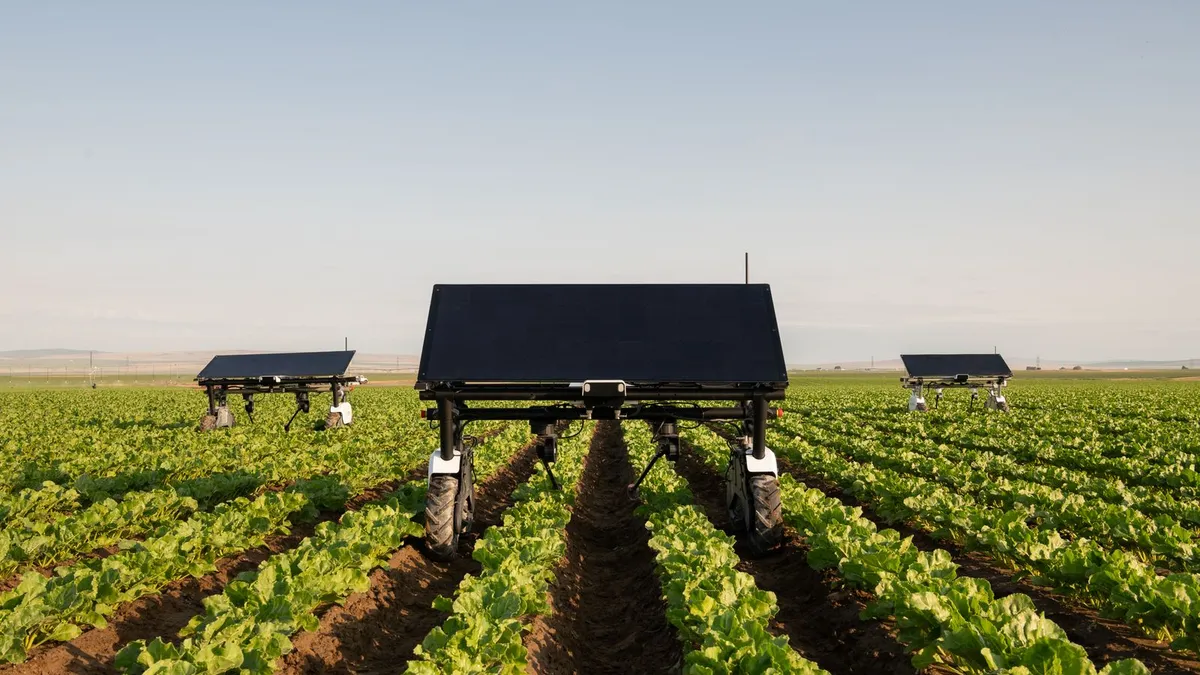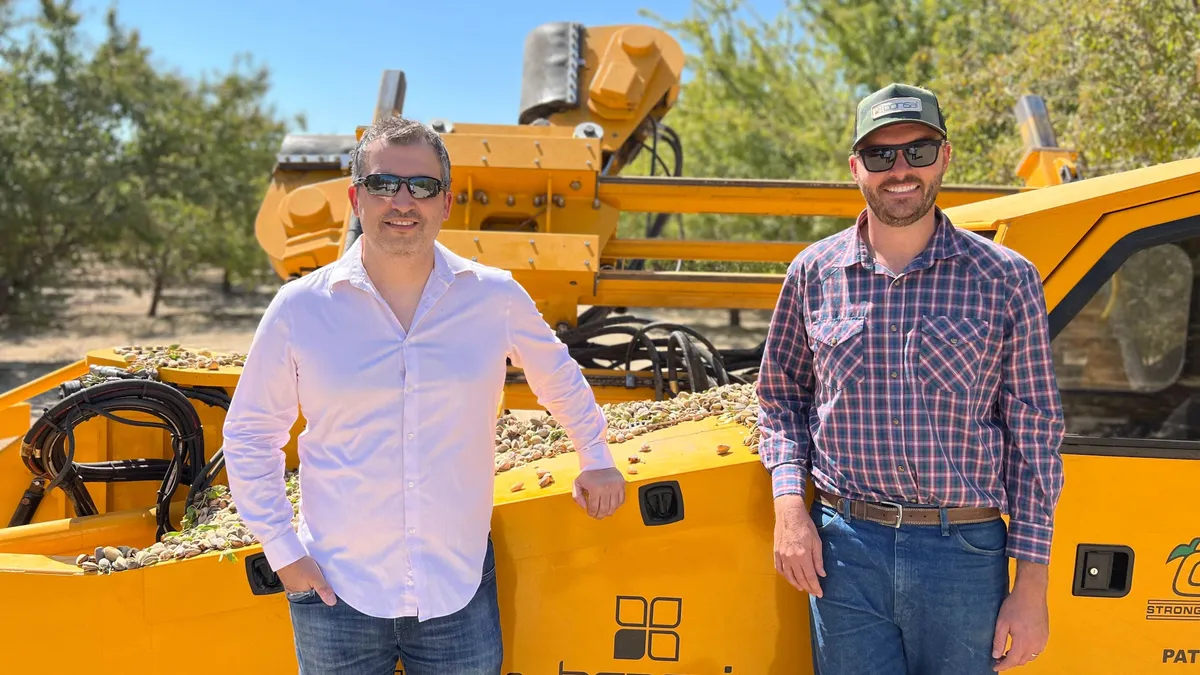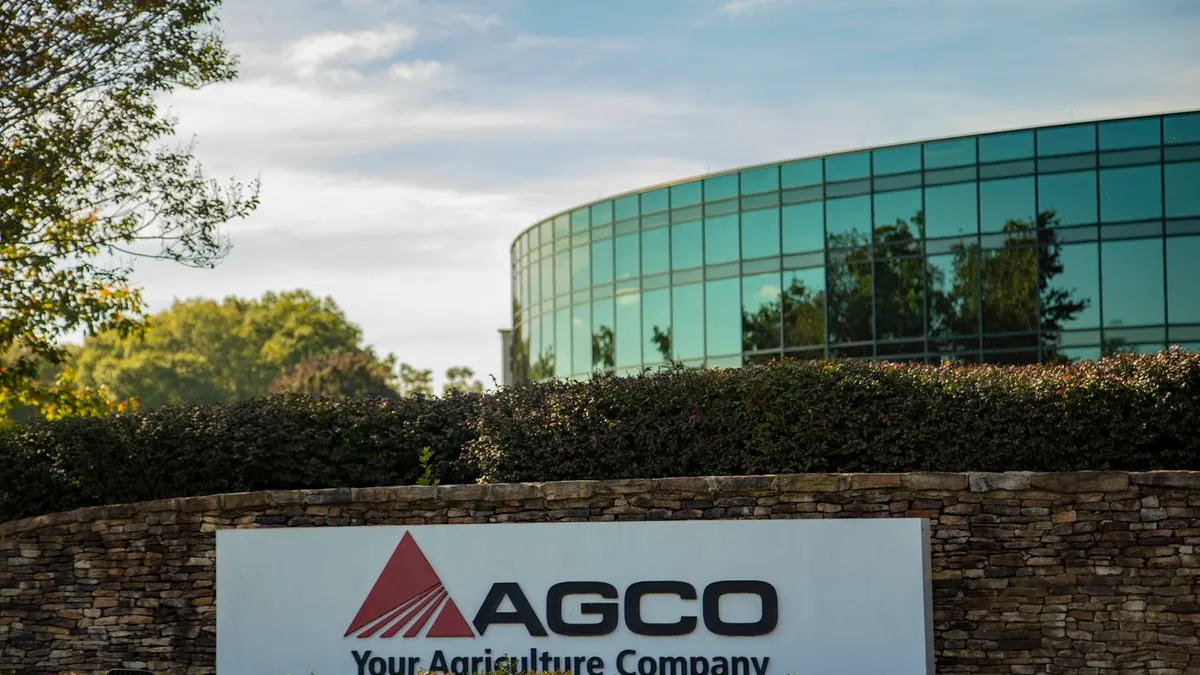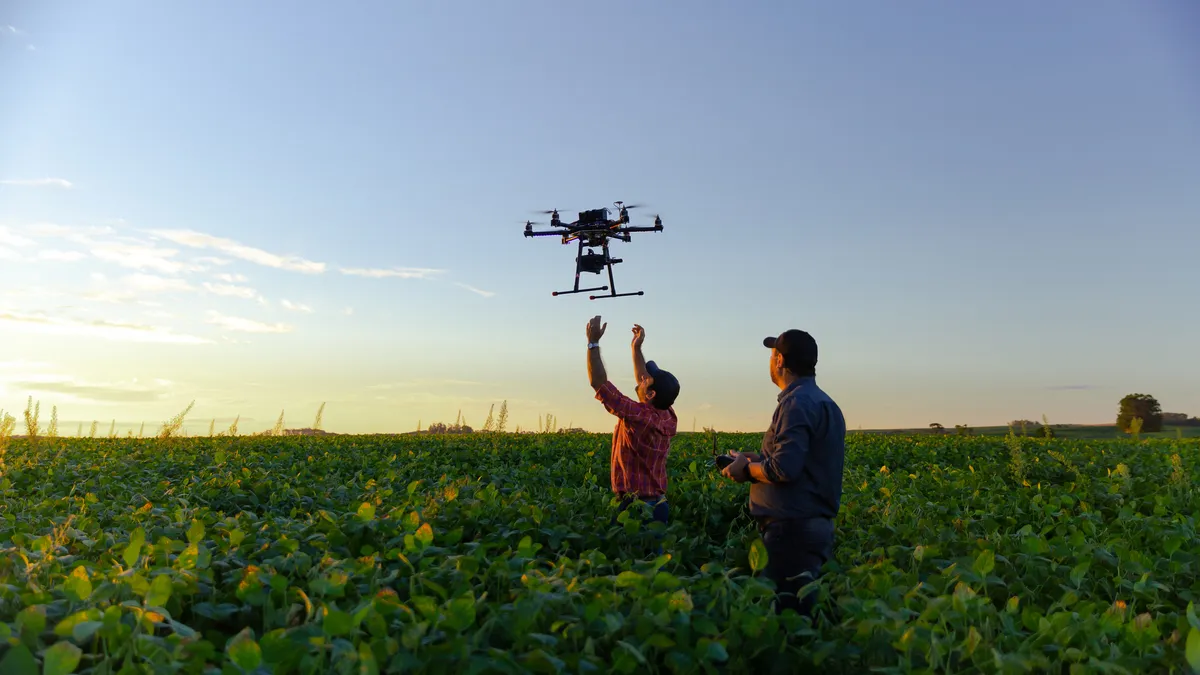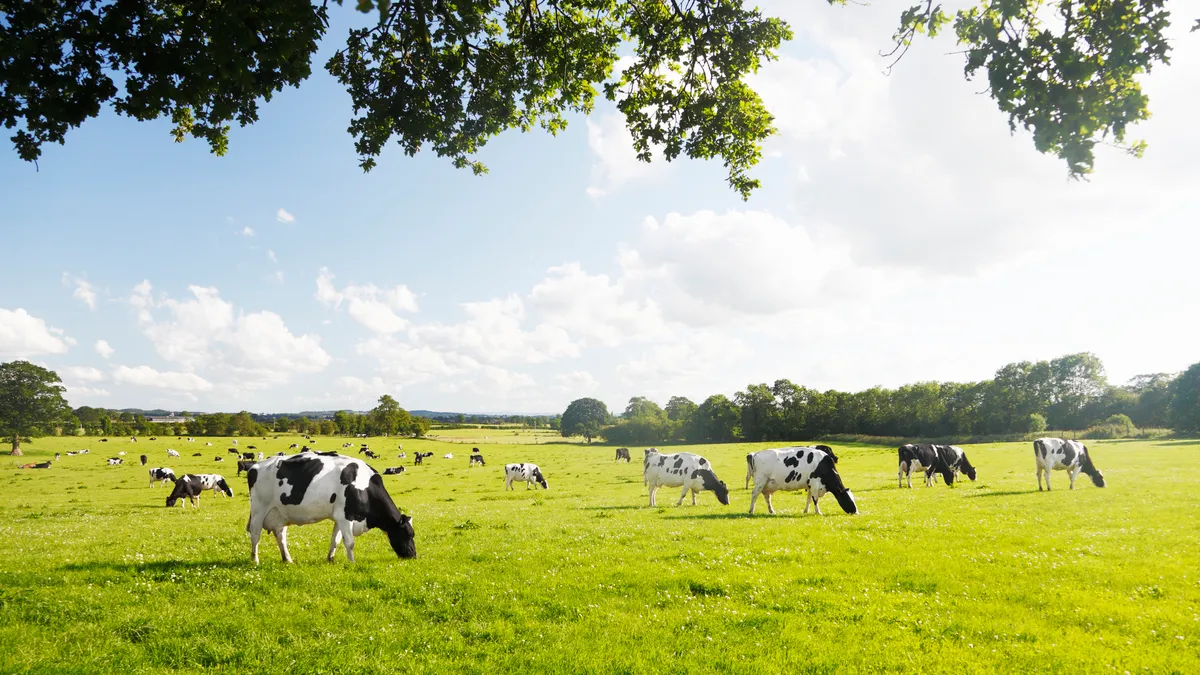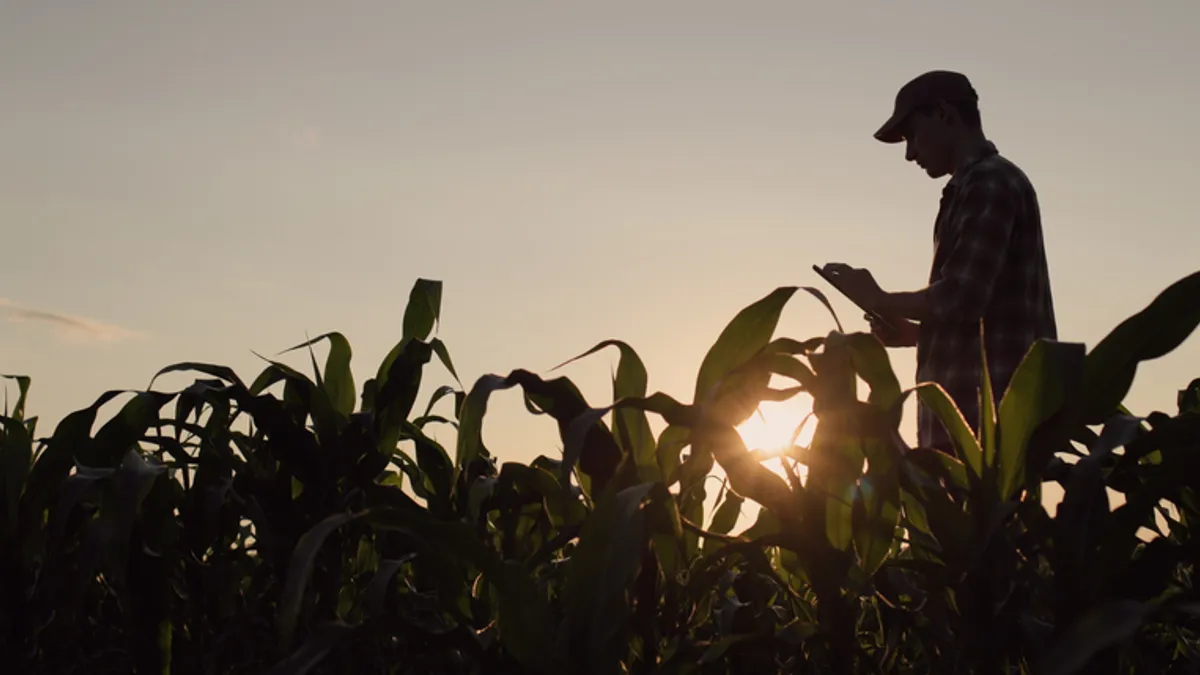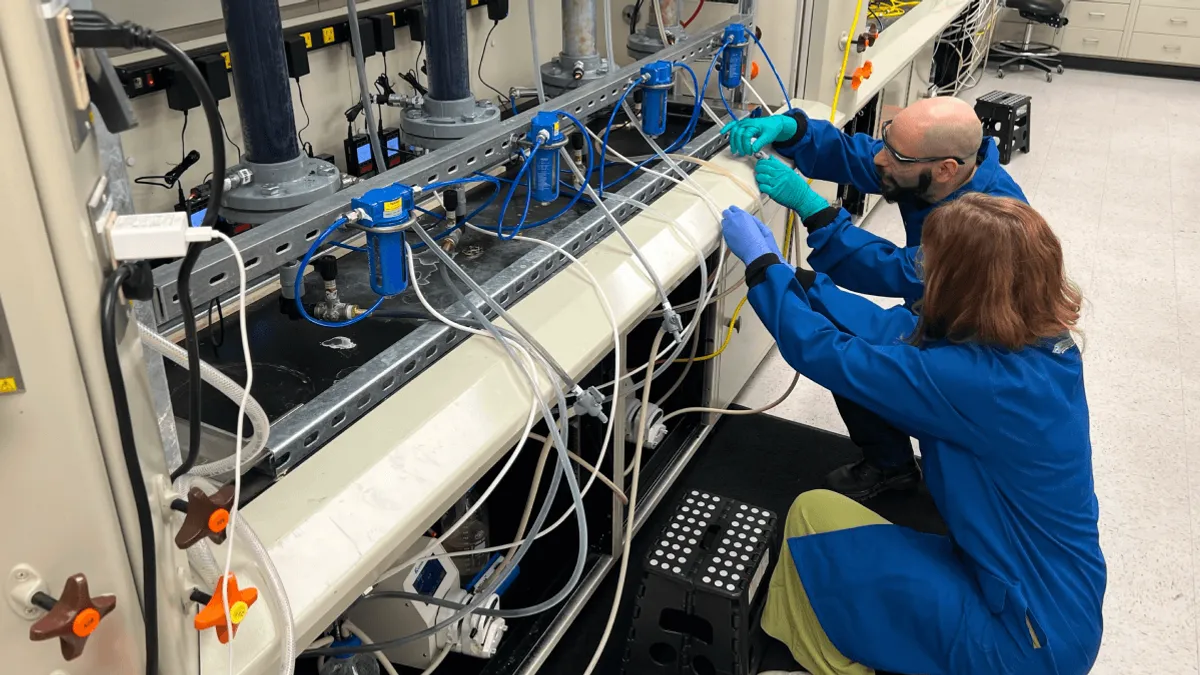Investments injected into agtech startups may have cooled since 2020 and 2021, but venture firms are still eyeing certain sectors and companies as the investment space looks to rebound and corral more VC interest.
In Q3 of 2023, deal values in the U.S. agtech industry improved 19.1% quarter-over-quarter, according to a Pitchbook report. That rebound was sorely needed after a dismal 2022: Around $29.6 billion was invested into agtech startups, globally, that year, down 44% from $53.2 billion in 2021.
Looking ahead, the agtech market will soar in five years from the 2020 figure of $9 billion to $22.5 billion, a compound annual growth rate of 20%.
But what are investors looking for in agtech companies and how vital has outside funding become for startups seeking to grab a foothold in their respective markets? Agriculture Dive spoke to several investors and startup founders to learn more about the past, present and future of the VC ecosystem in agtech.
Alternative proteins down, AI tech on upswing
Shubhang Shankar, managing director and portfolio lead at Syngenta Group Ventures, said 2021 was a banner year for all agtech categories, but recently some of those areas have cooled.
He notes how indoor farming and alternative protein firms were reeling in investment dollars but aren’t surging as they did two years ago. Consumption habits didn’t shift as drastically as expected.
VC funding for ag biotech soars
Instead, he’s recognized the deeper interest in agtech biologicals, which focuses on how nature-based technologies cater to integrated crop management. Additionally, there's been a boom in interest for artificial intelligence and innovative algorithm-based tech.
“There is an entire space of integration between AI and machine-learning with machinery drive innovation, such as smarter tractors and using tech to better target how to control weeds,” Shankar said, "and this type of innovation can have an impact in the long run.”
Investors have also spotted a link between climate tech and agtech, which has created new opportunities. Yield Lab partner Camila Petignat told TechCrunch in 2022 that "increased awareness of carbon markets in recent years has triggered new opportunities at the intersection of agtech and fintech.".
However, one of the biggest issues with agtech funding is the difficulty scaling startups. Very few have been able to successfully exit the startup stage, which may dissuade potential investors.
In 2021, 68 agtech exits were valued at $31 billion. In 2022, that figure stumbled to 47 exits and $2.5 billion, Pitchbook reports.
But Shankar is hopeful that will change.
“There’s a Tesla out there, for sure,” he said. “Venture capital has always been about building companies and financing innovation, and people forgot that it’s hard. And you do that within a three-year horizon, so investors in agtech have to be patient.”
For Monica Varman, a partner at Kleiner Perkins spinoff G2, she contends that for “any of these agtech products to take off, there needs to be an economic value prop at its core and farmers need a way to improve their agricultural practices.”
She cites the example of G2 funding Pivot Bio, which makes an alternative to synthetic nitrogen and raised $430 million in 2021 from various firms. Varman found Pivot Bio attractive due to how “farmers can practice regenerative agricultural practices and we saw the sales data in 2021 and how strong the ROI on the product would be.”
Shankar said he looks for three factors when deciding on an agtech investment: team, technology and market size. Startups should offer solutions that "move the needle for as large a segment of stakeholders as possible," he said.
“I want to see people driven by their company’s mission and to be passionate about what they are doing, as opposed to being motivated solely by money," he added. "There should be innovation that addresses a transformative problem. I don’t get excited by solutions that deliver 10% better of what already exists but 10 times of what exists today. ”
Startups still dependent on VC funding to 'grow and scale'
In October, spray-drone operator Rantizo announced Series A funding of $6 million led by Leaps by Bayer, Fulcrum Global Capital and Innova Memphis. CEO Mariah Scott said that funding round was needed to shift the company’s strategy from hardware services to “moving into the software space, offered to drone operators to help control their drones who spray crops."
She goes on to add, “That financing was critical for us to grow and scale.”
Bootstrapping is always an option for agtech startups, but the capital-intensive nature of Rantizo’s pivot wouldn’t allow for that kind of belt-tightening. “We have to add more software developers to help manage the technology that will overseeing more acres in the coming years,” she said.
Scott said she didn’t realize what a time commitment finding funding would be for her. “It’s like having two jobs. One job is running the company and building the team and another job is raising the capital, and everything requires a lot of balancing that shouldn’t be under-estimated.”
Aigen, a startup founded in 2020 that will roll out solar-powered robots leveraging advanced computer vision models to spot and kill weeds, raised $12 million in funding in October after raising $7 million in seed funding last year.
Co-founder and CEO Kenneth Lee said he found it challenging to attract investors due to “how capital intensive robotics hardware can be and a few years ago, when we were looking for funding then too, crypto and Web 3 was all the rage.” He added how recently he noticed a move from VCs to recognize “how agriculture can change the world.”
Aigen plans to use the funding to construct up to 60 robots once the company commercializes their product in 2024.
Beyond the capital needed for manufacturing, Lee said partnering with funders — who have yet to be named —can bridge the gap for startups seeking to establish themselves in a bustling market.
“The right partners can open the right doors for entrepreneurs,” he said, “and recruiting becomes easier, as top-tier talent may be more inclined to take a chance on you.”


